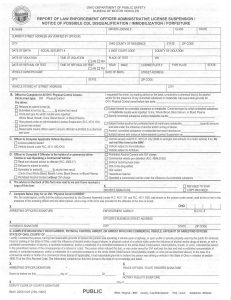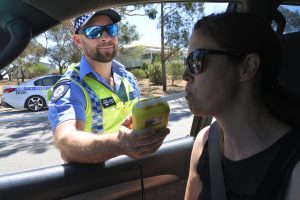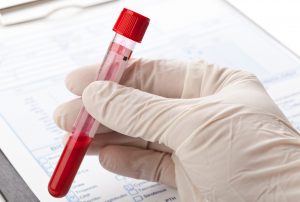 An 18-year-old Ohio man was charged with DUI (called ‘OVI’ in Ohio) and other offenses after hitting a school bus carrying students. According to WLWT5, the young man’s blood alcohol content was reported as .25. For individuals under age 21, there is a unique OVI-related offense in Ohio.
An 18-year-old Ohio man was charged with DUI (called ‘OVI’ in Ohio) and other offenses after hitting a school bus carrying students. According to WLWT5, the young man’s blood alcohol content was reported as .25. For individuals under age 21, there is a unique OVI-related offense in Ohio.
The Offense of OVUAC for People Under 21
For drivers of all ages, paragraph (A) of Ohio Revised Code section 4511.19 makes it illegal to operate a vehicle with a prohibited concentration of alcohol. The prohibited concentration is .08% for blood, .08 grams per 210 liters of breath, and .011 grams per 100 milliliters of urine. This is commonly referred to as the ‘legal limit’, and the offense is called Operating a Vehicle under the Influence (OVI). Continue Reading
 Columbus OVI/DUI Attorney Blog
Columbus OVI/DUI Attorney Blog



 A driver struck a trooper while the trooper was directing traffic, and the trooper suffered serious injuries. The driver submitted a urine sample, and a urine test showed a concentration of inactive marijuana metabolite above the ‘legal limit’. The driver was charged with and convicted of Aggravated Vehicular Homicide and DUI (called ‘OVI’ in Ohio). The Ohio Supreme Court
A driver struck a trooper while the trooper was directing traffic, and the trooper suffered serious injuries. The driver submitted a urine sample, and a urine test showed a concentration of inactive marijuana metabolite above the ‘legal limit’. The driver was charged with and convicted of Aggravated Vehicular Homicide and DUI (called ‘OVI’ in Ohio). The Ohio Supreme Court  An Ohio man was involved in a single-car accident. Officers responded to the accident scene and suspected the man was under the influence. The officers requested that the man perform field sobriety tests, and
An Ohio man was involved in a single-car accident. Officers responded to the accident scene and suspected the man was under the influence. The officers requested that the man perform field sobriety tests, and  An Ohio man pled guilty to Aggravated Vehicular Homicide and other charges. A few days before the sentencing was to be held, the defendant hired a new lawyer and filed a motion to withdraw his guilty plea. The judge held a hearing and
An Ohio man pled guilty to Aggravated Vehicular Homicide and other charges. A few days before the sentencing was to be held, the defendant hired a new lawyer and filed a motion to withdraw his guilty plea. The judge held a hearing and  The Ohio Senate passed a bill which could significantly change Ohio’s law prohibiting marijuana DUI (called ‘OVI’ in Ohio).
The Ohio Senate passed a bill which could significantly change Ohio’s law prohibiting marijuana DUI (called ‘OVI’ in Ohio).  A man
A man 
 An Ohio appellate court
An Ohio appellate court  The defendant in an Ohio Vehicular Homicide/Vehicular Assault case filed a motion to suppress the results of his blood test. Blood test results may be suppressed for various reasons. In this case, the defendant argues the blood test did not comply with the requirements of the Ohio Revised Code and the Ohio Administrative Code.
The defendant in an Ohio Vehicular Homicide/Vehicular Assault case filed a motion to suppress the results of his blood test. Blood test results may be suppressed for various reasons. In this case, the defendant argues the blood test did not comply with the requirements of the Ohio Revised Code and the Ohio Administrative Code.